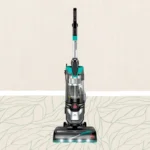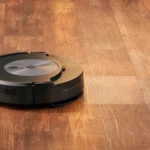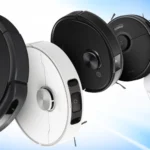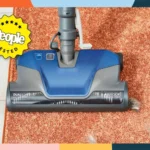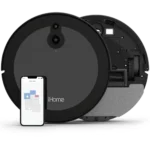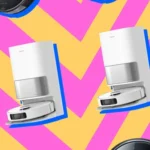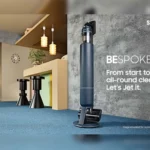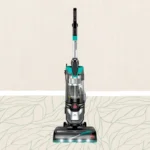When it comes to choosing a smart vacuum cleaner, there are a variety of factors to consider – one of the most important being the filter system. With so many different types of filters available, it can be difficult to know which one will best suit your needs. Should you go with a High-Efficiency Particulate Air (HEPA) filter or a standard filter? Each filter type has its own benefits and drawbacks, making the choice less straightforward than it may seem. In this article, we’ll take a closer look at HEPA and standard filters, examine their pros and cons, and ultimately help you decide which one is the best fit for you and your home.
Why Filter Systems Matter
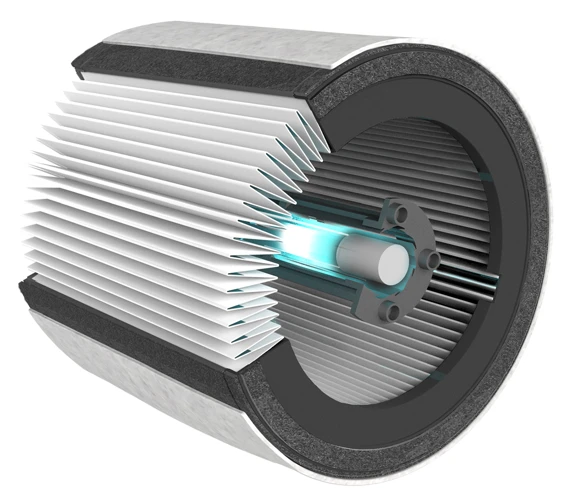
When it comes to smart vacuum cleaners, filter systems play a crucial role in ensuring optimal performance. These systems are designed to trap and remove dust, dirt, and other debris from your floors and surfaces, ensuring that the air in your home stays clean and healthy. Using advanced filtration technology, these systems help to prevent allergies and respiratory problems, making them an essential component of any smart cleaning device. In this article, we will compare two types of filter systems commonly found in smart vacuums: HEPA filters and standard filters. By weighing their relative benefits and drawbacks, we’ll help you determine which type is right for your needs. So, let’s get started! If you’re interested in other smart vacuum comparisons, check out our smart vacuum battery life comparison guide.
HEPA Filters
HEPA filters are becoming increasingly popular in smart vacuum cleaners due to their effectiveness at trapping small particles and allergens. HEPA stands for “High-Efficiency Particulate Air.” Essentially, a HEPA filter is made up of fine mesh that traps small particles as they pass through, preventing them from being released back into the air.
In fact, a HEPA filter will capture up to 99.97% of particles that are 0.3 microns or larger. To put that in perspective, a human hair is about 70 microns in diameter, so HEPA filters can trap particles that are much smaller than a human hair.
| Advantages of HEPA Filters | Disadvantages of HEPA Filters |
|---|---|
| Traps small particles including allergens | May need more frequent filter replacements due to clogging |
| Proven to be effective at improving air quality | May increase the cost of the vacuum cleaner |
| Can help people with allergies or asthma | Can cause reduced suction power in the vacuum cleaner as particles accumulate in the filter |
HEPA filters are particularly helpful for people with allergies or asthma because they can remove allergens like pollen, dust mites, and pet dander from the air inside your home. However, because HEPA filters trap so many particles, they can eventually become clogged and need to be replaced, which can be costly. Additionally, since HEPA filters are often used in higher-end vacuum cleaners, they may come with a higher price tag.
While HEPA filters can be incredibly effective, there are other types of filters that can also do a good job of capturing allergens and particles in the air. Let’s move on to discuss standard filters.
If you want to compare HEPA filters with other vacuum cleaner features, you can read our Bagged vs Bagless Smart Vacuum Comparison, Smart Vacuum Pet Hair Comparison, or Smart Vacuum Cleaners Mopping Comparison articles. Or you can learn more about navigation technologies in our Lidar vs VSLAM Nav Comparison.
Standard Filters
Standard filters, also known as “traditional” filters, are the most common types of filters used in vacuum cleaners. They are usually made of paper or cloth and effectively capture larger particles such as dirt and debris. Here are some points worth considering about standard filters when choosing a filter system for your smart vacuum cleaner:
Advantages of Standard Filters:
- Cost-effective: Standard filters are generally less expensive than HEPA filters, making them a more budget-friendly option.
- Good for Allergies: While not as effective as HEPA filters, standard filters can still be helpful for those with dust or pet allergies.
- Efficient for Larger Particles: Standard filters are better at capturing larger particles compared to HEPA filters, which can become clogged more quickly.
- Easier to Replace: Standard filters are usually easier to find and replace on your own than HEPA filters, which can require professional replacement.
Disadvantages of Standard Filters:
- Not as Efficient as HEPA Filters: Standard filters do not capture small particles as effectively as HEPA filters, which can include dust mites, pollen or pet dander.
- More Maintenance: Standard filters need to be replaced more often than HEPA filters, which can add up over time and increase long-term costs.
- Not Ideal for Allergies: While standard filters can be helpful for those with allergies, they may not be sufficient for severe cases where more advanced filters are required.
While standard filters may be a good choice for those on a budget or with mild allergies, they may not be the best option for those with severe allergies or who prioritize advanced filtration systems. It is important to carefully consider your home’s needs and your budget and determine whether a standard filter or a HEPA filter is the better option for your smart vacuum cleaner.
In case you’re also interested in other important features of smart vacuum cleaners, check out our article about the most powerful smart vacuum cleaners or our comparison between self-emptying and non-self-emptying smart vacuum cleaners.
HEPA Filters
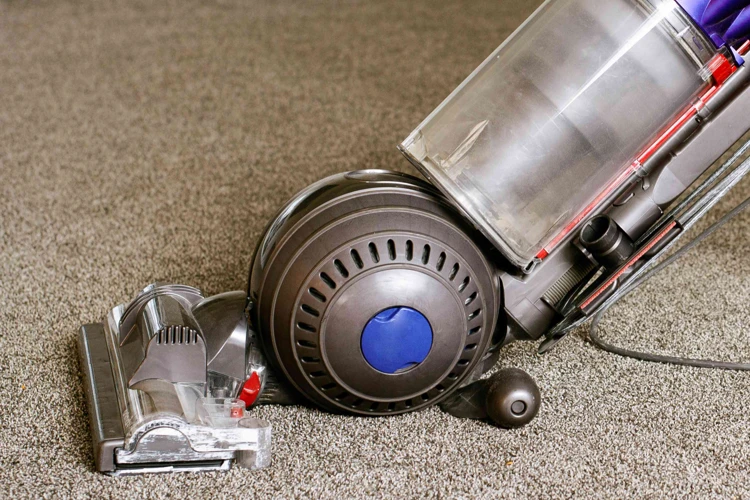
When it comes to the filter system of smart vacuum cleaners, there are a few key options available, including HEPA filters. HEPA filters have been gaining popularity for their ability to trap tiny particles and allergens in the air, providing cleaner air and reducing the risk of allergic reactions. However, there are also some potential drawbacks to HEPA filters that should be taken into consideration. Let’s take a closer look at what they are and whether they might be the right choice for you. For information on the noise levels of smart vacuum cleaners, check out our article on smart vacuum cleaner noise levels.
What is a HEPA Filter?
HEPA stands for High-Efficiency Particulate Air, and a HEPA filter is a type of filter commonly used in air purifiers and vacuum cleaners. It’s important to understand what HEPA filters are and how they work to make an informed decision when purchasing a smart vacuum cleaner.
What does a HEPA filter do?
A HEPA filter captures tiny particles, such as pollen, pet dander, and dust mites, and prevents them from circulating back into the air. HEPA filters trap particles as small as 0.3 microns with an efficiency rate of 99.97%. This is important for people with allergies or respiratory issues since these particles can cause irritation and health problems.
How does a HEPA filter work?
A HEPA filter is made up of a dense mat of glass fibers. This mat captures particles as air passes through it. The fibers are typically arranged in a pleated sheet or a cylinder to maximize surface area. An air purifier or vacuum cleaner with a HEPA filter will pull air through the filter, trapping these small particles and only emitting clean air.
HEPA filter standards
HEPA filters must meet certain standards to be classified as “true HEPA filters.” The United States Department of Energy has set these standards:
| Standard | Minimum Particle Size | Efficiency Rate |
|---|---|---|
| HEPA | 0.3 microns | 99.97% |
| SuperHEPA | 0.1 microns | 99.99% |
| UltraHEPA | 0.01 microns | 99.999% |
Why choose a vacuum cleaner with a HEPA filter?
If you or someone in your household suffers from allergies or asthma, a vacuum cleaner with a HEPA filter can significantly improve the air quality in your home. HEPA filters also prevent fine dust particles from clogging the motor of your vacuum cleaner, extending its lifespan. However, it’s important to note that HEPA filters need to be replaced regularly to maintain their efficiency.
HEPA filters are a great choice for those looking for an efficient air-cleaning solution in their smart vacuum cleaner. They capture tiny particles and improve indoor air quality, making them ideal for those with allergies or respiratory issues.
Advantages of HEPA Filters
HEPA filters are known for their superior filtering capabilities, making them an excellent choice for many people. Here are some of the advantages of having a HEPA filter in your smart vacuum cleaner:
- Efficient filtration: HEPA filters are highly effective at capturing microscopic particles, including dust mites, pet hair, and pollen. These filters can remove up to 99.97% of airborne particles that are as small as 0.3 microns. This makes them excellent for households with allergies or respiratory issues.
- Better air quality: Because of their exceptional filtration capabilities, HEPA filters can improve the air quality in your home. By trapping harmful pollutants, these filters can help reduce irritants that cause asthma or allergies, resulting in a healthier and more comfortable living environment.
- Durable: HEPA filters are quite durable and can last up to two years, which means you can enjoy clean air for an extended period without any worry. This long lifespan also makes HEPA filters a more cost-effective option in the long run.
- Versatile: HEPA filters can be used in different types of vacuum cleaners, making them a versatile choice for all households. Whether it be upright, canister or handheld vacuum cleaners, HEPA filters can ready to fulfill your needs.
HEPA filters are highly beneficial and make the perfect choice for anyone looking for improved air quality in their indoor environment, better health, and a more cost-effective and efficient cleaning system.
Disadvantages of HEPA Filters
While HEPA filters are highly effective at capturing small particles, they do come with some disadvantages. Here are some of the downsides of using HEPA filters in smart vacuum cleaners:
| Disadvantages | Explanation |
| Costly | HEPA filters can be expensive to replace, and they may need to be replaced more frequently than standard filters. |
| Reduced suction power | Due to the dense nature of HEPA filters, they can restrict airflow and reduce the suction power of the vacuum cleaner. |
| Requires more energy | Since HEPA filters restrict airflow, the vacuum cleaner may need to use more energy to maintain suction power, resulting in higher energy bills. |
| Not effective against odors and gases | HEPA filters are not effective at capturing odors or gases, which means that they may not be the best choice for households with pets or smokers. |
Despite these downsides, HEPA filters are still a highly effective choice for capturing small particles and allergens. It’s important to weigh the pros and cons of both HEPA and standard filters when choosing a smart vacuum cleaner for your home.
Standard Filters
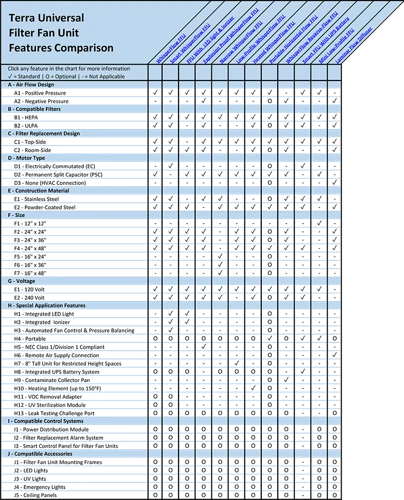
When it comes to keeping our homes clean, vacuum cleaners are essential tools that simply can’t be ignored. However, not all vacuum cleaners are created equal, particularly in terms of their filter systems. While HEPA filters are often touted as the top option, standard filters have their own advantages and disadvantages that can make them a suitable choice for some households. Let’s dive deeper into standard filters and explore what they have to offer.
What are Standard Filters?
Standard filters are the traditional filtration system used in vacuum cleaners. These filters are made of materials like foam, cotton or synthetic fabrics. They work by trapping dirt and debris within the fibers of the filter as air passes through it. Standard filters are cheaper than HEPA filters, but they also have some limitations.
Here are some characteristics of standard filters that you should know:
- They are not as effective as HEPA filters: Standard filters can capture larger particles, such as dust and pet hair, but they may not capture smaller allergens like pollen or mold spores.
- They need to be replaced more often: Standard filters tend to accumulate dirt and debris more quickly, which can clog the filter and reduce suction power. This means that they need to be replaced periodically to maintain the vacuum’s performance.
- They are less expensive: Standard filters are less expensive than HEPA filters, which is why many people choose them for their vacuum cleaners.
- They are easier to find: Since standard filters are the traditional filtration system for vacuum cleaners, they are widely available in stores and online retailers.
Standard filters are a good option if you are on a tight budget or if you primarily want to clean larger debris from your floors. However, if you suffer from allergies or want a higher level of filtration, then a HEPA filter would be a better choice for you.
Advantages of Standard Filters
Standard filters, also known as traditional filters, are the most common type of filter used in vacuum cleaners today. They have their own set of advantages that make them a popular choice for many people. Here are the advantages of using standard filters:
| Advantages | Description |
|---|---|
| Cost-effective: | Standard filters are less expensive than HEPA filters, making them a more budget-friendly option. |
| Good for general cleaning: | Standard filters are effective at picking up larger particles like dust and dirt, making them a viable choice for general cleaning tasks. |
| Easy to find replacement: | Standard filters are widely available and can be easily replaced when needed. |
| Improved air quality: | While not as effective as HEPA filters, standard filters still help improve air quality in the home by trapping some smaller particles like pollen and pet dander. |
| Longer lifespan: | Standard filters typically last longer than HEPA filters, making them less of a hassle to replace frequently. |
While standard filters may not be as effective as HEPA filters at capturing finer particles, they still have a lot of advantages that make them a great option for those looking to keep their homes clean. Plus, they can be a great alternative for those who may be sensitive to high-efficiency filters or suffer from allergies. When choosing the right filter for your vacuum cleaner, make sure to evaluate the advantages and disadvantages of both options to make an informed decision.
Disadvantages of Standard Filters
When it comes to standard filters, there are some disadvantages that you should be aware of before making a decision about which type of filter system is right for you. Some of the key disadvantages of standard filters are:
- Lower filtration efficiency: Standard filters are not as efficient as HEPA filters when it comes to removing allergens and other particles from the air. This means that they may not be as effective at improving indoor air quality for those with allergies or respiratory issues.
- Shorter lifespan: Compared to HEPA filters, standard filters tend to have a shorter lifespan before needing to be replaced. This means that you may need to invest in more frequent filter replacements over time, which can add to the cost of owning and maintaining a smart vacuum cleaner.
- Less effective at capturing small particles: Standard filters may be less effective than HEPA filters at capturing very small particles, such as those that are .3 microns or smaller. This can be a concern for those who want to ensure that their indoor air quality is as high as possible.
- Potentially more messy: Depending on the type of standard filter that your smart vacuum cleaner uses, it may be messier to replace or clean than a HEPA filter. Some standard filters may accumulate dust and debris more quickly, or be more difficult to remove and replace without causing a mess on your floors or elsewhere.
It’s important to consider the disadvantages of standard filters alongside their advantages when deciding between a HEPA filter or a standard filter for your smart vacuum cleaner. For some users, the lower cost and simpler maintenance of standard filters may be appealing despite their lower filtration efficiency, while others may prioritize the most advanced filtration technology available regardless of cost or maintenance requirements.
Which Filter is Right for You?
After learning about HEPA and Standard filters, you may be wondering which one is the right choice for your smart vacuum cleaner. The answer is, it depends on your specific needs and preferences.
Consider HEPA filters if: you or someone in your household suffers from allergies, asthma, or respiratory issues. HEPA filters are highly effective at capturing small particles like pollen, dust mites, pet dander, and other allergens. They can also help improve indoor air quality and create a healthier living environment. Additionally, if you have pets, a HEPA filter can help control pet hair and dander, making it an excellent choice for pet owners.
Consider Standard filters if: you are looking for a more affordable option with a broader range of compatibility with various vacuum cleaners. Standard filters are generally less expensive compared to a HEPA filter and can still effectively capture large debris like dirt, hair, and other particles. They are also suitable for general cleaning tasks and can be used in a wide range of environments, making them a highly versatile option.
Consider Both if: you want to maximize the benefits of both filter types. Some vacuum cleaners come with a dual filter system that combines the power of HEPA and Standard filters. This combination can provide excellent filtration for both small and large debris, making it a great option for those who prioritize both cleaning efficiency and air quality.
The final decision depends on your specific needs, budget, and the vacuum cleaner you own. Regardless of which filter you choose, make sure to replace it regularly to ensure optimal performance and prolong the lifespan of your vacuum cleaner.
Conclusion
After examining the differences between HEPA filters and standard filters in smart vacuum cleaners, it ultimately comes down to personal preference and individual needs.
For those who prioritize maximum filtration and air quality: HEPA filters are the way to go. These filters use advanced technology to capture and trap microscopic particles, making them ideal for households with individuals who suffer from allergies, asthma, or other respiratory issues. Although HEPA filters may be more expensive, their superior performance and increased lifespan make them a worthwhile investment.
For those who prioritize affordability and simplicity: Standard filters may be the better option. While they may not provide the same level of filtration as HEPA, standard filters still do an adequate job of capturing larger debris and improving indoor air quality. Additionally, they are typically more affordable and easier to replace.
It’s important to note that regardless of which filter system you choose, regular maintenance and proper use are essential to ensure proper filtration and longevity of your vacuum cleaner. This includes regularly replacing filters, emptying dustbins, and using the appropriate settings for each given surface.
Overall, whether you choose HEPA or standard filters in your smart vacuum cleaner, the benefits of improving indoor air quality and maintaining a clean home cannot be underestimated. It’s up to you to decide which filter system best fits your needs and budget.
Frequently Asked Questions
How often should I change my HEPA filter?
It depends on the usage and the manufacturer’s recommendations. Typically, HEPA filters should be changed every six to twelve months.
Are HEPA filters more expensive than standard filters?
Yes, HEPA filters are generally more expensive than standard filters. However, they provide superior filtration and can prevent health problems caused by poor air quality.
Can I clean and reuse my HEPA filter?
It depends on the manufacturer’s recommendations. Some HEPA filters can be cleaned and reused, while others need to be replaced. It’s important to follow the manufacturer’s instructions to maintain optimal performance.
What types of particles can a HEPA filter capture?
HEPA filters can capture a wide range of particles, including dust, pollen, pet dander, and mold spores. They can also capture small particles such as bacteria and viruses.
Do all vacuum cleaners come with HEPA filters?
No, not all vacuum cleaners come with HEPA filters. It’s important to check the specifications before purchasing a vacuum cleaner if you want a HEPA filter.
Can standard filters capture allergens?
Standard filters can capture some allergens, but they are not as effective as HEPA filters. They may not be able to capture smaller allergens like dust mites and pet dander.
Can a vacuum cleaner with a standard filter be used to clean carpets?
Yes, a vacuum cleaner with a standard filter can be used to clean carpets. However, it may not be as effective at capturing smaller particles that can cause allergies.
What are the advantages of using a vacuum cleaner with a HEPA filter?
The advantages of using a vacuum cleaner with a HEPA filter include improved indoor air quality, reduced allergies and asthma symptoms, and better overall health.
Can a vacuum cleaner with a standard filter be used to clean hardwood floors?
Yes, a vacuum cleaner with a standard filter can be used to clean hardwood floors. However, it may not be as effective at capturing small particles like dust and pet dander.
What is the lifespan of a standard filter?
The lifespan of a standard filter depends on the usage and the manufacturer’s recommendations. Typically, they need to be changed every three to six months.

